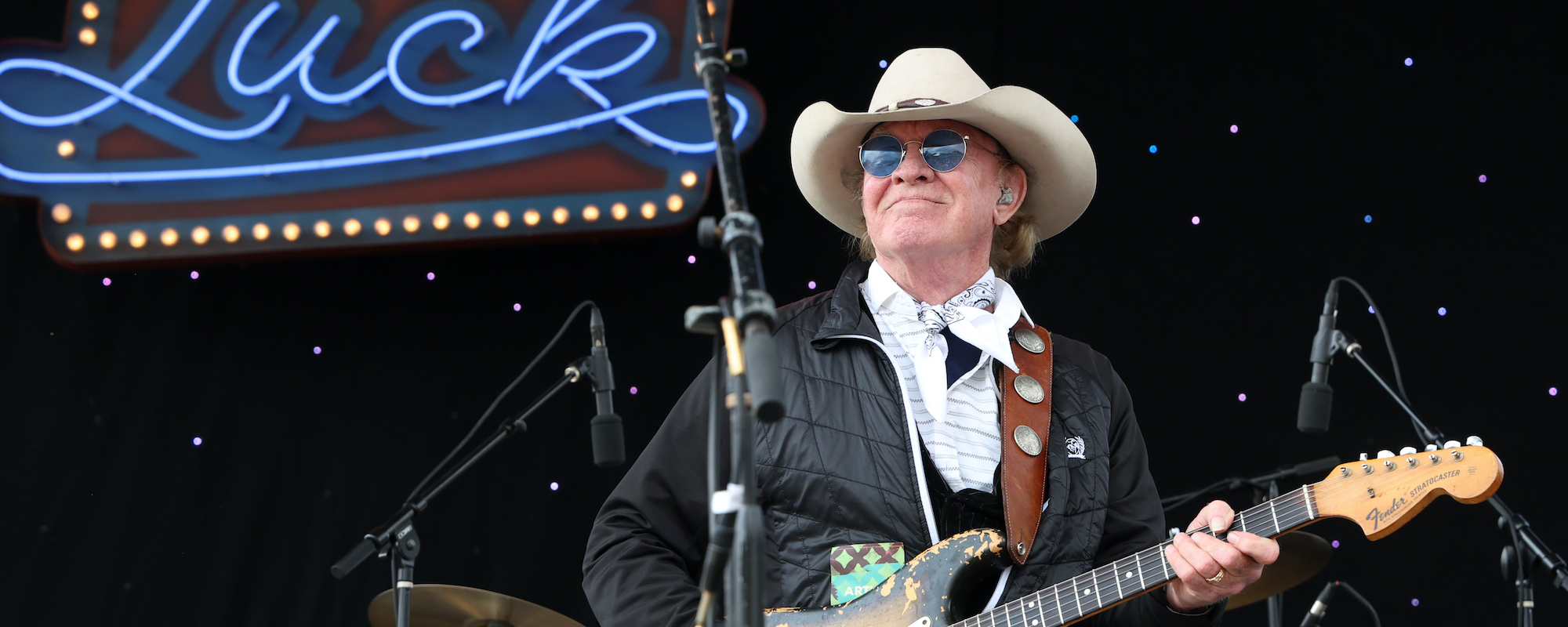Kacey Musgraves is spellbound on her third studio album, Golden Hour. The rest of the world was, too. It won the Grammy Award for Album of the Year, and her 2018 release might be one of the best country albums of the decade.
Videos by American Songwriter
The album is more existential than front-porch nostalgia. Musgraves calls herself “Spacey Kacey” on social media, but Golden Hour doesn’t sound like someone who’s distracted. It’s Kacey in space, collecting observations, then returning to Earth with the knowledge she’s received.
Golden Hour resolves with the earthy “Rainbow.” It’s a beautiful and exposed diary entry for the world to read. The song hung around for years before it found a home. But it didn’t gather dust in those years—it accumulated wisdom.
ROYGBIV
Musgraves’ tender ballad is an encouraging note wrapped inside a song. The sparse piano ballad that closes Golden Hour is a live studio recording, which contrasts the vivid and lush production of the album.
As she recorded Golden Hour, at the end of each session, she and producers Ian Fitchuk and Daniel Tashian turned down the lights and recorded live takes of “Rainbow.” Nearing the end of the sessions, they chose the best version. They emphasized raw emotion over multiple layers of production.
It’s a fitting approach to the song because of its straightforward emotion and collective pull. The deeply personal song began its universal glow with her family. Her grandmother loved “Rainbow,” and it was performed at her funeral.
When it rains, it pours
But you didn’t even notice it ain’t rainin’ anymore
It’s hard to breathe when all you know is
The struggle of stayin’ above the risin’ water line
Born as a hopeful note to herself, “Rainbow” evolved into something bigger. Over time, it became an anthem for anyone moving through life under a dark cloud.
Well, the sky has finally opened
The rain and wind stopped blowin’
But you’re stuck out in the same ole storm again
You hold tight to your umbrella
Well, darlin’, I’m just tryin’ to tell ya
That there’s always been a rainbow hangin’ over your head
Everyone’s Anthem
Aptly named, Musgraves wished “Rainbow” to be an anthem for the LGBTQ+ community. Golden Hour’s release in 2018 came at a time when America wasn’t shining. But the album’s sepia burn brought needed warmth to the country’s gloomy turn.
In the second verse, Musgraves sounds like Bob Dylan in prophet form, as he appeared in “A Hard Rain’s A-Gonna Fall.” She writes like no one else has seen a rainbow before, but the knowledge arrives without condescension.
If you could see what I see, you’d be blinded by the colors
Yellow, red, and orange, and green, and at least a million others
So tie up the bow, take off your coat, and take a look around
It’s New for Someone
Natalie Hemby and Shane McAnally co-wrote “Rainbow” with Musgraves six years before it made her album. The timelessness of “Rainbow” predates her debut, Same Trailer Different Trash, and Musgraves’ ability to sing about things like she’s witnessing them for the first time endured with her reinvention on Golden Hour.
There’s a genuine innocence to the way Musgraves writes songs. She takes a doe-eyed view of the world, almost like she’s just landed here from another planet. But her songs aren’t without perception, and a fresh view of everyday occurrences like sunrises and rainbows offers a perspective unclouded by cynicism.
Pageant Material
The lack of cynicism is another reinvention for Musgraves, who documented life as a girl growing up in the South on Pageant Material. On the title track, she sings, And it ain’t that I don’t care about world peace, but I don’t see how I can fix it in a swimsuit on a stage. Musgraves’ unique sarcasm made some clutch their pearls, but the music world discovered a refreshingly honest voice.
With Golden Hour, Musgraves moves on from old-timey country music and gives a nod to Beck’s brilliant melancholy on Sea Change. Even when referencing traditional sounds on her first two albums, the lyrics set her apart from Americana retro-ism. But her perspective zoomed out on Golden Hour to macro-universal language, replacing the detailed décor of her earlier material.
Silver Lining
No stranger to silver linings, Musgraves delivers hope from despair, replacing the dead-end town vibe with a fix for a broken world. As Musgraves ascended to stardom, she widened her writing lens to glimpse a world outside the place she came from.
Empathy always bubbled underneath the irony, but “Rainbow” sounds like someone genuinely free, and Musgraves wants everyone else to feel warmth in the vivid glow.
When you purchase through links on our site, we may earn an affiliate commission.
Photo by JC Olivera/WireImage













Leave a Reply
Only members can comment. Become a member. Already a member? Log in.